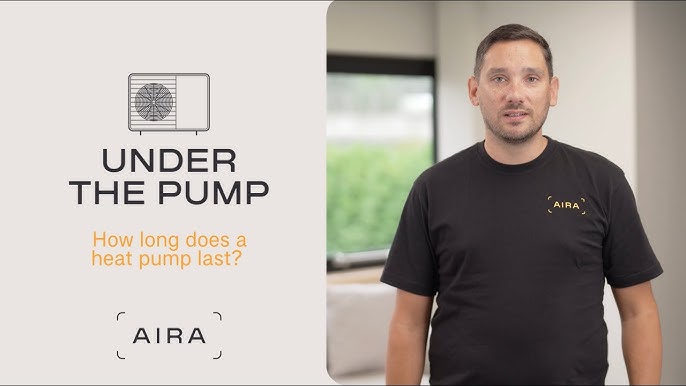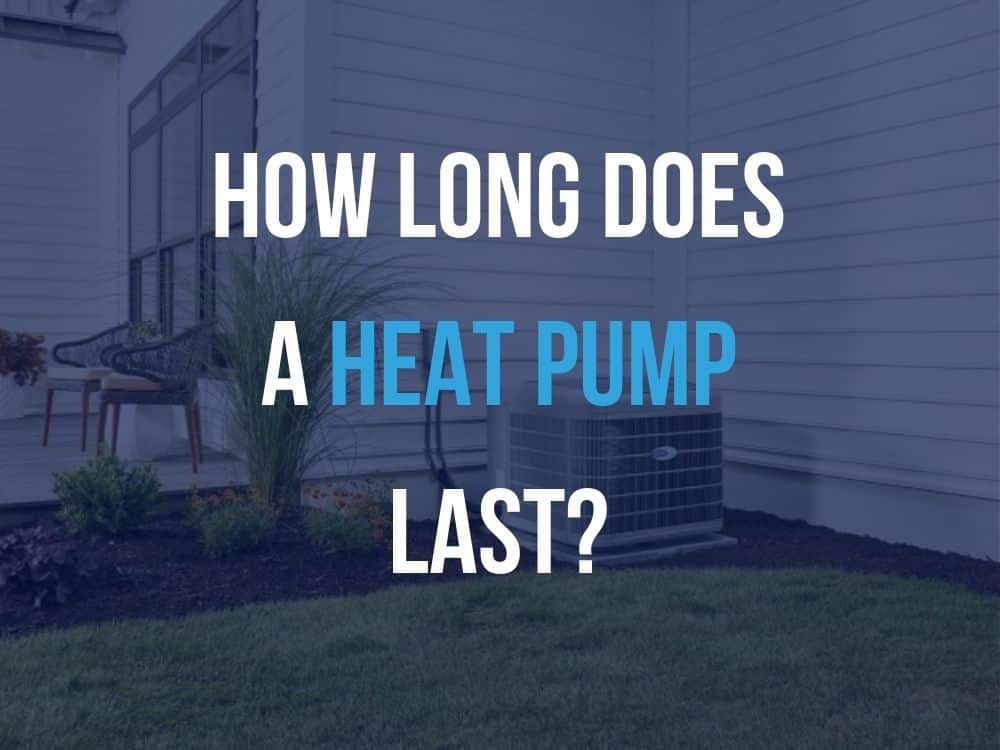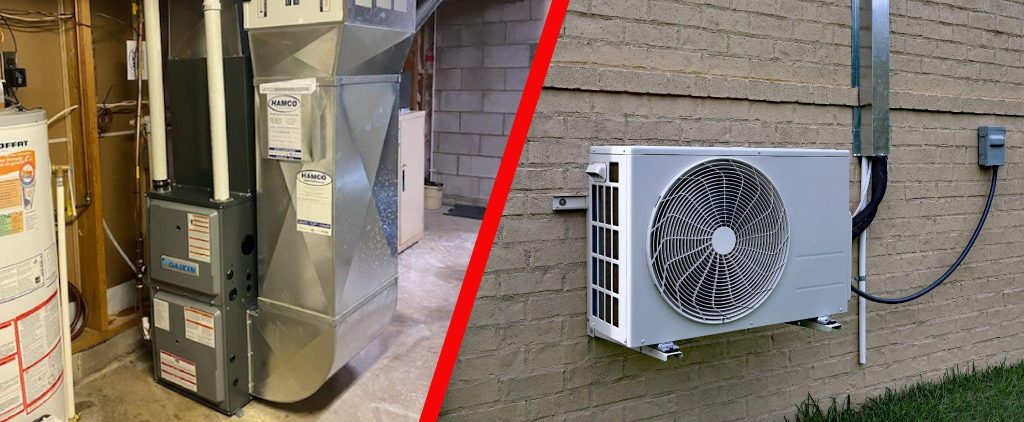A heat pump typically lasts 15 to 20 years. The lifespan depends on maintenance and usage.
Heat pumps are key to home comfort. They warm in winter and cool in summer. But how long can you rely on them? It’s a common question among homeowners. Understanding their lifespan helps plan for future costs. Proper care can extend their life.
Regular checks and timely repairs are crucial. They ensure efficiency and longevity. This post explores factors affecting heat pump durability. Learn what impacts their lifespan. Find tips to maximize their service years. Discover how to keep them running smoothly. Knowledge here will guide your decisions. Stay informed about your heat pump’s health.
Introduction To Heat Pumps
Heat pumps move heat from one place to another. They can heat and cool homes. They are very useful in different seasons. Heat pumps use less energy. They help save money on electricity bills. This makes them a smart choice for many families.
Heat pumps have two main parts. One is the indoor unit. The other is the outdoor unit. The indoor unit blows warm or cool air. The outdoor unit takes heat from outside. Heat pumps work well in both cold and hot weather. They keep homes comfortable all year.
Many new homes have heat pumps. They are popular because they are efficient. They help the environment by using less energy. Heat pumps also improve indoor air quality. This makes homes healthier. They are a smart choice for modern living.

Credit: www.youtube.com
Factors Influencing Lifespan
A heat pump’s lifespan depends on its installation quality. Proper installation prevents damage. Incorrect setup leads to wear and tear. Skilled workers ensure long-lasting equipment. Poor installation reduces efficiency. Inspect your heat pump regularly. This helps catch issues early.
Regular maintenance keeps a heat pump running well. Simple tasks like cleaning help. Dirty filters make pumps work harder. Check for leaks often. Small problems become big if ignored. Yearly check-ups are smart. Proper care extends a pump’s life. Neglect shortens it.
Average Lifespan Expectations
A heat pump usually lasts between 10 to 15 years. This is the typical range. Some heat pumps might last a bit longer. It depends on care and use. Regular maintenance helps them last longer.
Heat pumps last as long as central air systems. They both have a similar lifespan. However, furnaces can last longer. A furnace might last up to 20 years. This makes them different from heat pumps. But, heat pumps are more efficient for heating and cooling.
Signs Of Wear And Tear
Heat pumps show signs when they age. These signs help us know if they need fixing. Listen for strange noises. This can mean parts are wearing out. If your room feels less warm, the pump may be losing efficiency. Look for any leaks around the pump. This could be a sign of trouble.
Some signs are easy to see. Higher energy bills are a big clue. If the pump runs more than usual, it may be failing. Frequent repairs mean the pump is nearing its end. Dusty or dirty air can also be a sign. It shows the pump is not working well.
Think about replacing the pump at ten years old. It may cost more to fix than to replace. If the pump breaks often, it’s time for a new one. Energy efficiency goes down as pumps get old. New pumps work better and save money. Be sure to ask a technician for advice.
Extending The Life Of A Heat Pump
Keep your heat pump clean. Dirt can make it work harder. Check filters often. Clean or change them regularly. Inspect coils for dirt. Clean them if needed. Listen for strange noises. They can signal problems. Look at the thermostat. Make sure it works right. Check the outdoor unit for dirt and leaves. Clear them away. Schedule check-ups with professionals. They find problems early. Early fixes can save money.
Use your heat pump wisely. Set the thermostat to a steady temperature. Avoid large changes. They make the pump work harder. Keep doors and windows closed. This saves energy. Use curtains or blinds. They help keep heat inside. Limit the use of other heat sources. Too much heat can confuse the pump. Insulate your home. This keeps the heat where it should be.

Credit: orzechheating.ca
Impact Of Climate On Longevity
Weather affects how long a heat pump lasts. In cold places, heat pumps work harder. They need to heat homes more often. This can wear out parts faster. In hot places, they cool homes. Heat pumps in moderate climates last longer. The weather is not too hot or cold. Regular checks help too. It keeps the pump working well. Remember, climate is a big factor in lifespan.
Regional Climate Effects
Different regions have different effects on heat pumps. In snowy areas, ice can build up. It makes the heat pump work harder. In coastal areas, salt can cause rust. This can damage the pump. Dry places have less humidity. This can be better for pumps. Each place has its own challenges. Knowing them helps in caring for the pump.
Adapting To Weather Conditions
People can make changes to help their heat pump. Use a cover to protect it from snow. Clean it often in salty air. This stops rust. In dry areas, check for dust. Dust can block the pump. Simple steps can keep it working longer. Always remember, care helps it last.
Innovations In Heat Pump Technology
Heat pumps have new designs that make them last longer. Engineers use better materials now. These materials resist wear and tear. They also improve efficiency and performance. Modern designs focus on durability. This means fewer repairs.
New designs also make heat pumps quieter. People do not hear noise like before. This helps with comfort at home. Better design means better energy use. Homes stay warm without wasting power.
Heat pump lifespan has grown. Now, they can last up to 15 years. Some even go beyond 20 years with good care. Regular maintenance is key. It helps pumps run smoothly.
Technology changes are important. They extend the life of heat pumps. Owners save money on fewer replacements. They enjoy the benefits for longer.

Credit: cagleservice.com
Cost Considerations And Benefits
Buying a heat pump can be a big decision. The initial cost might seem high. But think about the years it will last. On average, a heat pump lasts 15 to 20 years. This makes it a good investment.
Regular care can make it last longer. Spending a bit on maintenance saves money in the long run. A well-kept heat pump uses less energy. This means lower energy bills each month.
Heat pumps can save money over time. They are more efficient than traditional systems. This means they use less electricity. In winter, they heat homes well. In summer, they cool homes efficiently.
A reliable heat pump can reduce the need for other heating or cooling devices. This can lead to significant savings over the years. Many people find the long-term benefits worth the initial cost.
Conclusion
Heat pumps offer long-term value. Proper care extends their lifespan. Regular maintenance is key. Clean filters and check refrigerant levels often. Keep outdoor units clear of debris. Professional inspections ensure efficiency. A reliable heat pump lasts 15 to 20 years.
Choose quality models for better performance. Trusted brands offer solid warranties. Evaluate energy usage and repair history. Upgrading may be wise if costs rise. Remember, an efficient heat pump saves money. Invest time in upkeep for lasting comfort. Make informed decisions for home energy solutions.
Your heat pump’s life depends on your care.
I’m Robert M. Payne, a passionate enthusiast for turning houses into dream homes. With a knack for DIY projects and a keen eye for design, I’ve dedicated myself to sharing my knowledge and experiences in the realm of home improvement.
As a seasoned homeowner and avid DIYer, I understand the challenges and joys that come with transforming living spaces. Through Myhomemyworld, I aim to inspire and guide fellow homeowners on their journey to creating spaces that reflect both functionality and style.
Cheers to creating spaces that truly feel like home.
Connect with me in facebook

